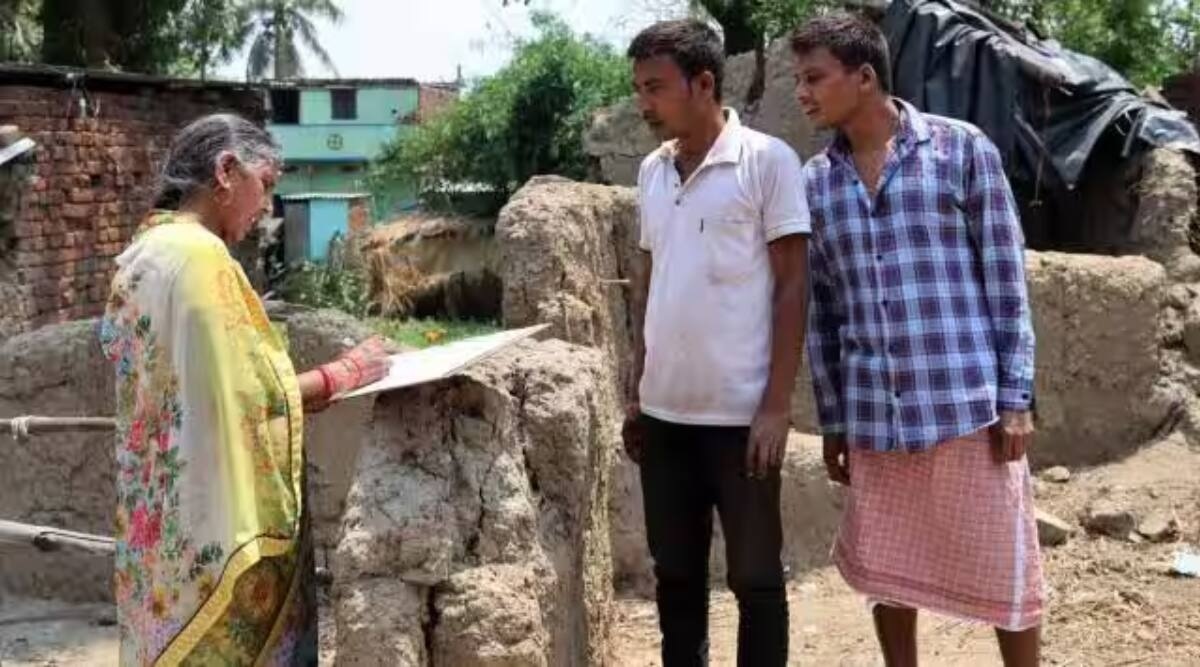ALTHOUGH FINDINGS of the Bihar caste survey were released on Monday, the Nitish Kumar government’s decision to conduct the exercise has been challenged in the courts and is still awaiting final outcome before the Supreme Court. It has been challenged on the grounds that it violates the Supreme Court’s privacy judgment and is actually a census in the garb of a survey, which is beyond the legislative competence of the state government.
Petitions opposing the exercise were initially filed in the Supreme Court in January this year but the court refused to entertain them and asked the petitioners to approach the High Court if they had any grievance.

Subsequently, petitions were filed in the Patna High Court urging it to quash the notifications issued for the survey. Hearing the matter on April 18, the High Court orally rejected the prayer for interim relief.
On appeal, the Supreme Court on April 28 noted that the plea was pending before the High Court and asked it to decide the petitioner’s fresh application for interim relief at the earliest.
On May 4, the High Court, while hearing the prayer for interim relief, put the survey on hold. A division bench of Chief Justice K Vinod Chandran and Justice Madhuresh Prasad said the Bihar government’s measure was an infringement upon the rights of Parliament and suggested that the exercise was essentially “a census”.
“Prima facie, we are of the opinion that the state has no power to carry out a caste-based survey, in the manner in which it is fashioned now which would amount to a census, thus impinging upon the legislative power of the Union Parliament,” the bench said. It also raised questions regarding privacy and data security.
The Bihar government appealed to the Supreme Court but a bench of Justices A S Oka and Rajesh Bindal declined to lift the stay. The court said there are issues of privacy involved. Justice Oka also said the court will have to see if what is being done is indeed a census in the name of a survey.
Story continues below this ad
The matter was once again heard by the High Court where a bench of Chief Justice K Vinod Chandran and Justice Partha Sarathy on August 1 upheld the survey. The bench said: “…we find the action of the State to be perfectly valid, initiated with due competence, with the legitimate aim of providing ‘development with justice’…”
Regarding privacy concerns, the High Court went by the state’s affidavit, which referred to letters by the Bihar State Electronics Development Corporation Ltd, on whose servers the data is stored, that “…application and data-based hosting related with caste-based census for State Data Center is a secured IT Infrastructure…”
This was further challenged before the Supreme Court.
In fact, documents filed in the appeal before the top court challenging the August 1 decision show that notifications issued by the state government in June, July, September and November 2022 in connection with the conduct of the exercise, had referred to it as a “census”.
Hearing the appeal, a two-judge bench presided by Justice Sanjiv Khanna, however, refused to stay the High Court order. “We are not staying anything. We are very clear about this. Unless a prima facie case is made out, we will not stay,” said Justice Khanna.
Story continues below this ad
The appellants contended that the state’s move is clearly in violation of the Supreme Court’s nine-judge bench verdict in the 2017 privacy case (K S Puttaswamy vs Union of India) wherein it was held that State cannot encroach on the privacy of individuals without a law to back it. The survey, however, was carried out on the basis of an executive order, they contended.
The union government also filed a brief affidavit in the Supreme Court stating that Census Act, 1948, empowers only the Centre to conduct a census. The government said that it was filing the affidavit “only with a view to place the constitutional and legal position for consideration” of the court.









